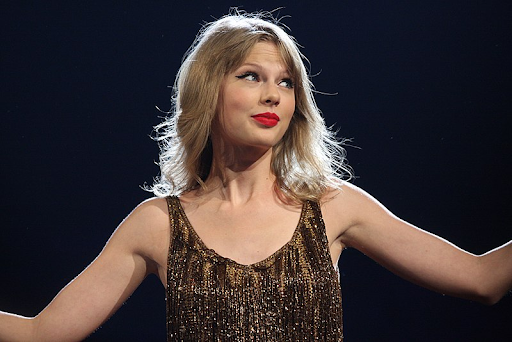The current political climate is a topic up for much debate with the upcoming presidential election. Most people have an opinion on the issue and celebrities are no different, but how important are the opinions of public figures?
Taylor Swift endorsed Vice President Kamala Harris for president via social media on Tuesday, Sept. 10 following the presidential debate between Harris and former President Donald Trump. This decision garnered large reactions online, with Trump-supporting fans of Swift being upset by the development and Harris’ social media accounts referring to the singer in many of their posts.
In the week after the endorsement, Elon Musk posted “Fine, Taylor…you win…I will give you a child and guard your cats with my life,” in response to Swift’s endorsement sign-off: “Childless Cat Lady.” Trump then posted “I hate Taylor Swift” and began selling merchandise modeled after Swift’s Eras Tour designs.
Other celebrities have also spoken up directly about their voting plans in recent weeks such as musicians Billie Eilish and her brother FINNEAS who both endorsed Harris on Sept. 17. Additionally, social media personality Bryce Hall appeared onstage at Trump’s Las Vegas rally on Sept. 15. These popular names are not alone as many other notable figures have endorsed both candidates over the course of their presidential campaigns.
Celebrities’ voices are those heard by masses, which is why their statements about larger issues, like the presidential election, are important. Especially to young voters, having an artist, actor or social media personality who they enjoy and admire care about politics might get them interested as well. Millions of followers on social media allows someone vast outreach, and using that outreach for the spread of information is extremely important.
On the other hand, having a large platform gives celebrities a massive opportunity to share hate and harmful misinformation. The fact is, this type of speech runs rampant and often unchecked on the internet, but for celebrities, the existence of a large audience full of possibly impressionable fans makes for a harmful combination.
The modern phenomenon known as “cancel culture” curbs this dangerous scenario a bit. We have seen many examples, even in just the last few months, of celebrities and internet personalities losing close to all their acclaim because of resurfaced hateful posts they made.
An online presence is crucial for building and maintaining one’s public image. Once celebrities establish a significant platform, they often face criticism if they don’t use it to address major issues. Before Swift’s endorsement of Harris, many online users urged her to voice her political stance in this presidential race. While Swift had endorsed Joe Biden in the 2020 election, she remained silent in the current campaign until after the presidential debate. Following her endorsement, false rumors circulated that she had lost up to 40 million followers. These claims proved untrue; in fact, Swift’s follower count increased.
Many aspects come together when someone is making the choice of how to use their vote. So, while celebrities’ voices are a useful tool for the spread of information and letting the public know a political opinion can be a possible guideline to political decisions, it is not an effective strategy to base those decisions solely on the opinion of one person, who you likely don’t even know.
A fairly common sentiment on social media since Swift’s endorsement of Harris revolves around wondering why she shared her voting plans, and who cares about knowing them, or criticizing an imaginary audience for basing their vote on a celebrity.
However, statistics from Newsweek suggest that Swift’s influence on voters may be less significant than critics claim. Only 6% of a poll conducted on adults in the United States say that Swift’s endorsement makes them more likely to vote for Harris, compared to 81% saying the endorsement does not change their opinion on Harris at all. Thirteen percent actually answered that it makes them less likely to vote for Harris.
The voice of a celebrity like Swift, and most celebrities that speak up about the situation, is valued in this situation based on respect for her character and current relevance in the media, not because she is a credible source with a wealth of political knowledge and respect.
Celebrities reserve the right to speak their beliefs, political or otherwise; however, it is important to remember that famous names are still just people.













